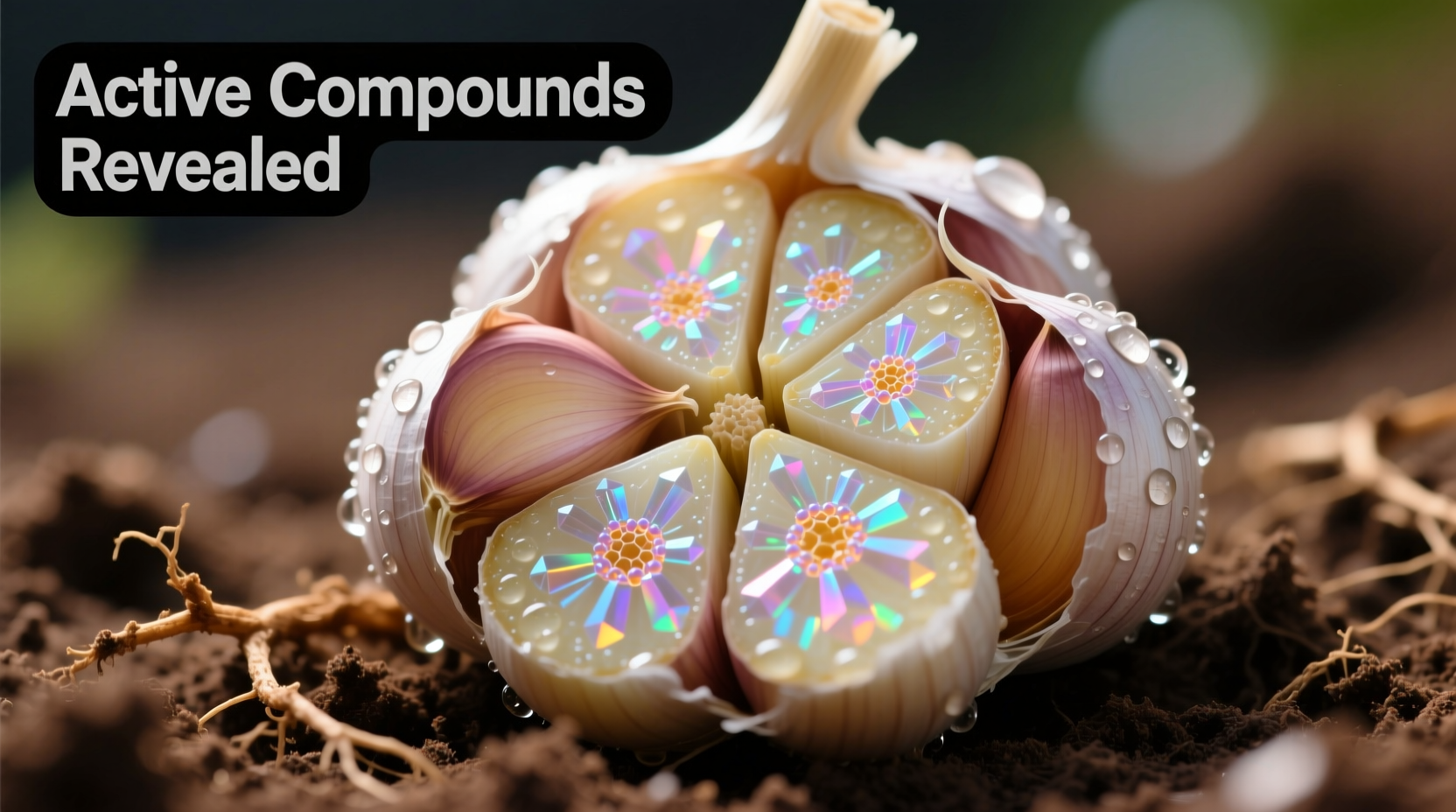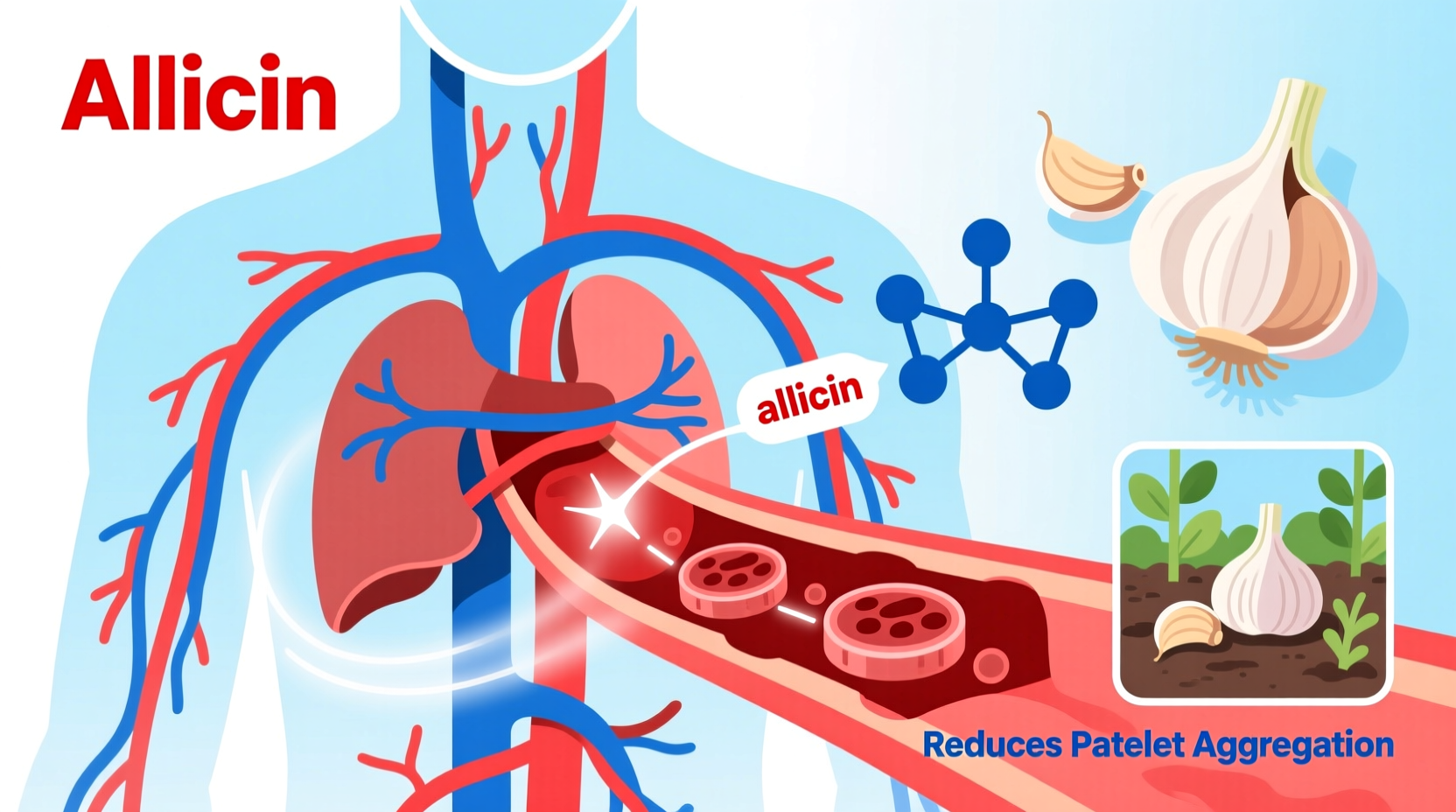Yes, garlic does have mild blood-thinning properties due to compounds like allicin and ajoene, which can inhibit platelet aggregation. However, the effect is significantly weaker than prescription anticoagulants like warfarin, and typical culinary use is generally safe for most people. Those taking blood-thinning medications should consult their doctor about garlic consumption.
Understanding Garlic's Blood-Thinning Effects: Science and Safety
When you add garlic to your cooking or take garlic supplements, you're introducing bioactive compounds that interact with your body's clotting mechanisms. This isn't just kitchen folklore—scientific research confirms garlic's anticoagulant properties, though the strength and implications vary significantly based on consumption method and individual health factors.
How Garlic Affects Blood Coagulation
Garlic contains several compounds that influence blood flow and clotting:
- Allicin: Forms when garlic is crushed or chopped, this sulfur compound inhibits platelet aggregation
- Ajoene: A more stable compound that prevents platelets from sticking together
- Adenosine: Promotes vasodilation, improving blood flow
These compounds work through multiple pathways, including inhibiting thromboxane production and affecting calcium channels in platelets. Unlike prescription blood thinners that target specific coagulation factors, garlic's effects are more generalized and considerably milder.
| Substance | Mechanism of Action | Relative Strength | Onset Time |
|---|---|---|---|
| Garlic (fresh, 1-2 cloves) | Inhibits platelet aggregation | Mild (1-2 hours) | 2-4 hours |
| Garlic supplements | More concentrated effect | Moderate (3-6 hours) | 4-6 hours |
| Aspirin (81mg) | Inhibits COX-1 enzyme | Moderate-Strong | 30-60 minutes |
| Warfarin | Inhibits vitamin K-dependent factors | Strong | 24-72 hours |
What Research Says About Garlic and Blood Thinning
A comprehensive review published in Phytotherapy Research analyzed multiple studies on garlic's anticoagulant effects. The research shows that while garlic does demonstrate blood-thinning properties, the clinical significance varies:
- Consuming 1-2 fresh garlic cloves daily produces minimal anticoagulant effect in healthy individuals
- Garlic supplements (particularly aged garlic extract) show more consistent effects
- Effects typically last 2-7 hours after consumption
- Significant interaction risk exists when combining garlic with prescription blood thinners
The National Center for Complementary and Integrative Health (NCCIH) notes that while garlic may offer cardiovascular benefits, "the evidence for garlic as a blood thinner is preliminary and more research is needed to determine optimal dosing and clinical significance." (nccih.nih.gov)

When Garlic Consumption Matters Medically
For most healthy people, culinary garlic use poses no significant blood-thinning risk. However, certain situations warrant caution:
Context boundaries for garlic consumption: The blood-thinning effects become medically relevant when:
- Taking prescription anticoagulants (warfarin, apixaban, etc.)
- Within 7-10 days before surgery or dental procedures
- Having a bleeding disorder like hemophilia
- Consuming high-dose garlic supplements (more than 1,000mg daily)
According to the American Heart Association, "While garlic may have modest benefits for heart health, patients on anticoagulant therapy should maintain consistent garlic intake and discuss any changes with their healthcare provider." (heart.org)
Practical Guidance for Safe Garlic Use
If you're concerned about garlic's blood-thinning effects, consider these evidence-based recommendations:
For Healthy Individuals
- Normal culinary use (1-2 cloves daily) is generally safe
- Fresh garlic has more transient effects than aged garlic supplements
- Spread consumption throughout the week rather than consuming large amounts at once
For Those on Blood-Thinning Medication
- Maintain consistent garlic intake (sudden changes can affect medication efficacy)
- Avoid high-dose garlic supplements without physician approval
- Inform your surgeon or dentist about regular garlic consumption before procedures
- Monitor INR levels more closely if changing garlic consumption habits
Garlic and Medication Interactions: What You Need to Know
The most significant concern isn't garlic alone, but garlic's interaction with prescription medications. Research from the Mayo Clinic indicates that garlic can enhance the effects of:
- Warfarin (Coumadin)
- Aspirin
- Clopidogrel (Plavix)
- Other antiplatelet medications
This interaction doesn't mean you must eliminate garlic, but rather that you should maintain consistent consumption patterns and discuss them with your healthcare provider. Sudden increases in garlic intake while on blood thinners could potentially increase bleeding risk.
Myth vs. Reality: Common Misconceptions
Let's address some common misunderstandings about garlic and blood thinning:
- Myth: Eating garlic can replace prescription blood thinners
Reality: Garlic's effect is too mild and inconsistent for therapeutic blood thinning - Myth: All forms of garlic have the same blood-thinning effect
Reality: Fresh garlic, cooked garlic, and supplements have significantly different potencies - Myth: Garlic causes dangerous bleeding in healthy people
Reality: Culinary use poses minimal risk for those not on medication or with bleeding disorders
Conclusion: Balancing Benefits and Risks
Garlic does have mild blood-thinning properties that can benefit cardiovascular health, but these effects require thoughtful consideration for certain populations. For most people, enjoying garlic as part of a balanced diet offers health benefits without significant risks. Those on blood-thinning medications or with bleeding disorders should consult their healthcare provider about appropriate garlic consumption.
The key is consistency and communication with your healthcare team—sudden changes in garlic intake could affect medication efficacy, but moderate, consistent use is generally safe for most individuals.











 浙公网安备
33010002000092号
浙公网安备
33010002000092号 浙B2-20120091-4
浙B2-20120091-4